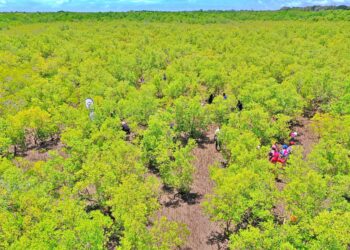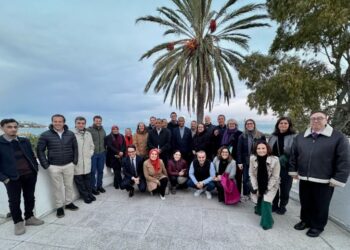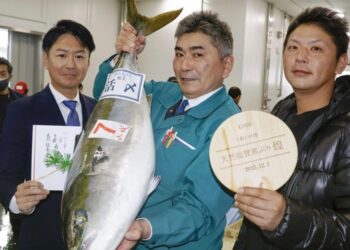The Mediterranean still under pressure – Each year, the European Commission publishes a detailed update on the state of EU fisheries and launches a public consultation to discuss fishing opportunities for the following year. This communication analyses progress towards sustainable fishing practices, the balance between fishing capacity and opportunities, the socio-economic performance of the sector and the implementation of the landing obligation.
The Commission’s recent report, ‘Sustainable Fisheries in the EU: State of Play and Orientations for 2025’, highlights that the sustainability of EU fisheries continues to improve gradually, with fewer and fewer fish stocks being overfished. However, further efforts are needed to ensure the long-term resilience of the sector and the sustainability of key species in all sea basins.
Fish stocks in the north-east Atlantic are showing healthy levels and sustainable fisheries management is paying off, especially in EU waters. Despite this progress, some species crucial to the ecosystem and to trade continue to be in trouble.
In the Mediterranean and Black Sea, stocks are slowly improving, but fishing mortality is still too high.
Despite being at the lowest level ever recorded, it is still 20 percent higher than the recommended sustainability rate. Greater efforts are needed to allow species and ecosystems to fully recover.
The situation in the Baltic Sea is particularly worrying, with fish stocks steadily declining due to various pressures. Four out of ten stocks are no longer fished and can only be landed as by-catch. The Commission will continue to take measures to address these pressures and improve the state of ecosystems.
Fishing communities are severely affected by climate change, which causes uncertainty in the availability of fish stocks. Illegal, unreported and unregulated (IUU) fishing also reduces fishermen’s access to sufficient resources. Greater efforts are therefore needed to combat IUU fishing and ensure compliance with conservation and control measures, including in non-EU countries.
The Commission has launched a public consultation, inviting Member States, advisory councils, the fishing industry, NGOs and citizens to share their perspectives on fishing opportunities for 2025. Views can be expressed online until 31 August.
The Commission will then present three proposals for fishing opportunities for 2025: in the Atlantic and North Sea, in the Baltic Sea, and in the Mediterranean and Black Sea. These proposals will be based on multi-annual management plans, scientific advice from the International Council for the Exploration of the Sea (ICES) and economic analyses from the Scientific, Technical and Economic Committee for Fisheries (STECF). The proposals will also incorporate adjustments resulting from the implementation of the landing obligation.
The Council will discuss the Commission’s proposals and decide on fishing quotas for 2025 at its meetings in October and December this year.
In parallel, the Commission is preparing an evaluation of the Common Fisheries Policy to analyse the effectiveness of the instruments and measures adopted over the last decade, also examining the new dynamics of fishing relations with third countries.
The Mediterranean still under pressure







